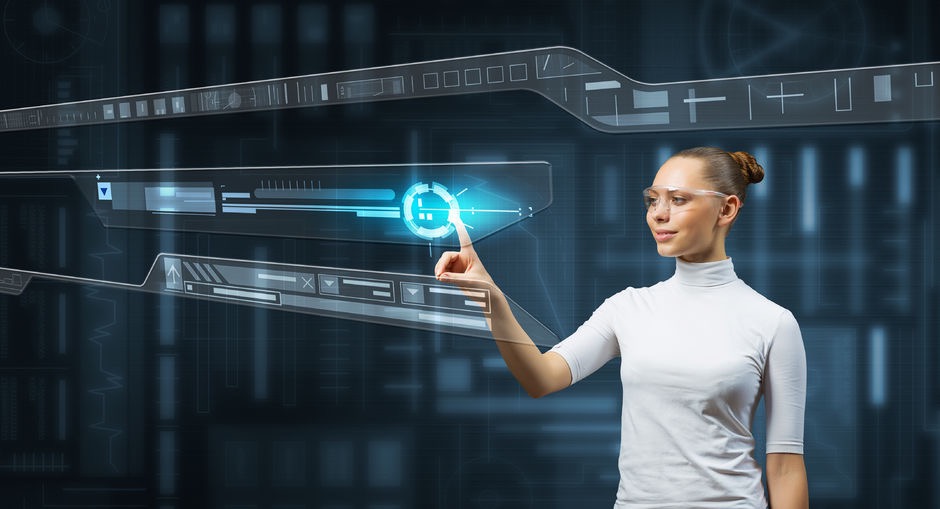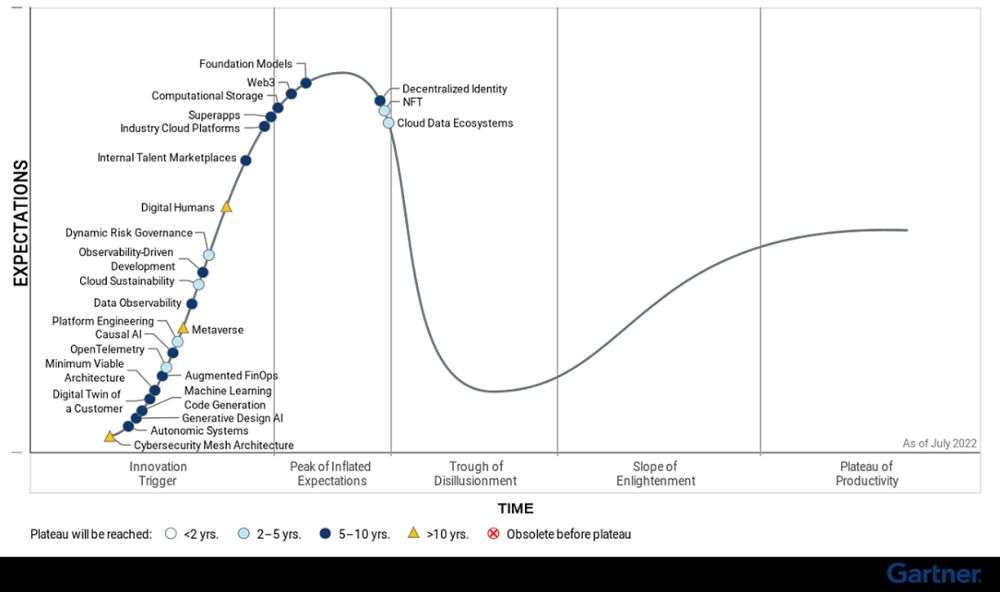August 10, 2022 — The 25 emerging technologies to watch on the Gartner, Inc. Hype Cycle for Emerging Technologies, 2022 are enabling the evolution and expansion of immersive experiences, accelerating artificial intelligence (AI) automation and optimising technologist delivery.
“Emerging technologies offer transformational potential for businesses, but CIOs and technology innovation leaders are challenged to scale digital capabilities while improving sustainability in the face of expanding resource constraints,” said Melissa Davis, VP analyst at Gartner. “It is essential that organisations cut through the noise surrounding emerging technologies to accelerate change by leveraging innovations that drive competitive differentiation and efficiency.”
The Hype Cycle for Emerging Technologies is unique among Gartner Hype Cycles because it identifies key insights from more than 2,000 technologies and applied frameworks that Gartner profiles each year into a succinct set of “must-know” emerging technologies and trends. These technologies and trends have potential to deliver a high degree of competitive advantage over the next two to 10 years (see Figure 1).
Figure 1. Hype Cycle for Emerging Technologies, 2022
Source: Gartner (August 2022)
“All technologies on this Hype Cycle are at an early stage, but some are nascent and great uncertainty exists about how they will evolve. Such technologies present greater risks for deployment, but potentially greater benefits for early adopters who can assess and exploit them in line with their organisation’s ability to handle unproven technologies,” said Gary Olliffe, distinguished VP analyst at Gartner.
See also: Everyone’s Talking About the Metaverse, But What is It?
Three Themes of Emerging Technology Trends
Evolving and Expanding Immersive Experiences: The future of digital experience is immersive. A collection of emerging technologies supports such experiences through dynamic virtual representations, environments and ecosystems of customers and people, as well as new modes of user engagement. With these technologies, individuals can control their own identities and data and experience virtual ecosystems that can be integrated with digital currencies. These technologies help reach customers in new ways to strengthen or open new revenue streams.
The technologies to watch that deliver evolving and expanding immersive experiences are metaverse, non-fungible tokens (NFTs), super apps and Web3, decentralised identity, digital humans, digital twin of the customer and internal talent marketplaces.
Accelerated AI Automation: AI adoption is expanding as an integral part of products, services and solutions. This is accelerating the creation of specialised AI models that can be applied to automate model development, training and deployment. AI automation refocuses the role of humans in AI development, resulting in more accurate predictions and decisions and faster time to expected benefits.
The technologies that are supporting accelerated AI automation are autonomic systems, causal AI, foundation models, generative design AI and machine learning code generation.
Optimised Technologist Delivery: Successful digital businesses are built, not bought. A set of emerging technologies focuses on the product, service and solution builder communities, such as fusion teams, and the platforms they use. These technologies provide feedback and insight that optimise and accelerate product, service and solution delivery and increase sustainability of business operations.
The critical technologies that are optimising technologist delivery are augmented FinOps, cloud data ecosystems, cloud sustainability, computational storage, cybersecurity mesh architecture, data observability, dynamic risk governance, industry cloud platforms, minimum viable architecture, observability driven development, OpenTelemetry and platform engineering.










